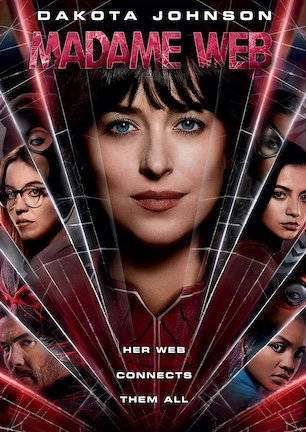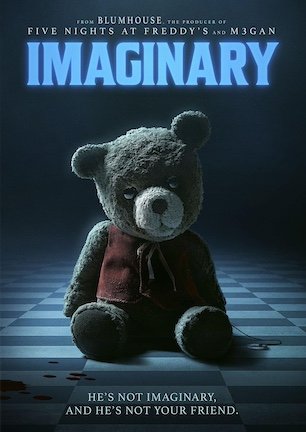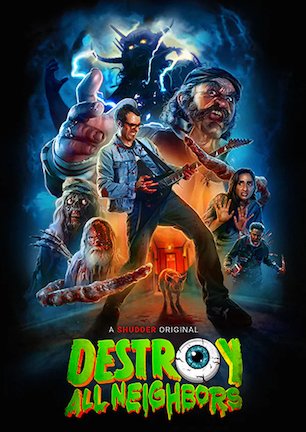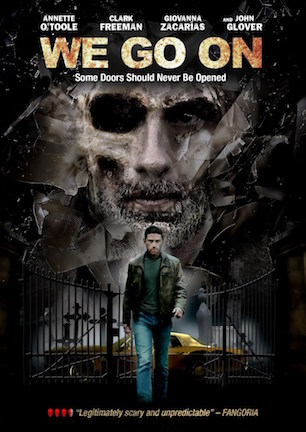Studio: New Line Cinema
Director: Brett Leonard
Writer: Brett Leonard, Gimel Everett
Producer: Gimel Everett
Stars: Jeff Fahey, Pierce Brosnan, Jenny Wright, Mark Bringleson, Geoffrey Lewis, Jeremy Slate, Dean Norris, Colleen Coffey, Troy Evans, Rosalee Mayeux, Austin O’Brien, John Laughlin
Review Score:
Summary:
A research scientist turns a disabled man into a genius through experimental VR, but creates a cybernetic god in the process.
Review:
“The Lawnmower Man” wears the crown for being the adaptation of a Stephen King work to least resemble its source material. The film is so far removed from the original short story that King’s lawyers spent two years arguing a lawsuit against New Line, ultimately leading to the removal of “Stephen King’s…” from the title for essentially being misleading marketing.
Of the movie itself, King told the L.A. Times, “I think it’s pretty good.” But the exploitive association of his name irked the author to remark, “it’s like taking a Mercedes hood ornament and putting it on a Chevrolet and selling it as a Mercedes.”
When “The Lawnmower Man” released theatrically in 1992, I was on a kick of catching up with “based on the novel/story by” materials before seeing a film. I recall watching the trailer, reading a Fangoria piece, then briefly marveling, “Stephen King’s imagination was so far ahead of its time that he was writing VR-based science-fiction in 1975?”
Then I read the actual story in “Night Shift,” which takes about five minutes to do since it runs only nine or so paperback pages long. This promptly led to a “Drink Your Ovaltine” moment when I realized the King quickie about a naked man ritualistically eating grass to power a demonic gardening tool had nearly nothing to do with the movie I’d been sold.
My left-brain would later understand the business logistics of why a studio would want the Stephen King tie, even though the produced screenplay connected to his text in name only. At the time, my right-brain echoed King’s sentiment that the movie was “pretty good,” so I didn’t immediately grasp why it wasn’t promoted as an original entity.
Something else making “The Lawnmower Man” memorable is how definitively dated it is to the 1990s. This doesn’t merely mean its CGI or what might now be considered a “quaint” depiction of virtual reality cyberspace. On the contrary, the movie’s visuals hold up considerably well after 25 years, more so than many peers at any rate. There are crime dramas on current TV with episodes featuring fake video games that look far more primitive than anything happening here.
What really roots “The Lawnmower Man” to its era are clichés of storytelling structure and characters sneaking past the radar before Clinton-era political correctness could pick up their pings.
As evidenced by a baggy Polo shirt and single gold hoop earring, this is a pre-Bond Pierce Brosnan playing Dr. Larry Angelo, a research scientist on the brink of a breakthrough with computer technology that can enhance intellect. Angelo is so obsessed with virtual reality that he is casually dismissive about the man beating his wife and child next door, and barely musters a Willy Wonka-like protest when his wife walks out the door.
Meanwhile, Jeff Fahey plays mentally challenged gardener Jobe, a dead ringer doppelganger for Ben Stiller’s “Simple Jack” in mannerisms and costuming. After losing his animal test subject in a one-chimp “Planet of the Apes” revolt, Angelo is more anxious than ever to take his research into human trials, and Jobe is an ideal candidate.
This being a 1990s scientific endeavor, it is naturally funded by a shadowy government organization interested only in the experiment’s military applications. Looking like a baby-faced Reggie Bannister, Dean Norris plays big baddie ‘The Director,’ who regularly appears as a head giving orders to a bald lickspittle over a video screen. Knowing that Norris became a fantastic actor well known for his role as Hank on “Breaking Bad” makes it acceptable to laugh at his awful performance here. Norris seems to think a Shatner-esque cadence combined with a whisper is the preferred way to read as a stuffy megalomaniac.
Disparate agendas and surreptitious sabotage combine to create conditions where Angelo’s VR gyrosphere does more than project Jobe’s consciousness into cyberspace. The machine manipulates Jobe’s mind into becoming something beyond human. And his new powers enable the formerly mild-mannered man to become a digital monstrosity capable of recreating humanity in his image.
As for other aforementioned staples of 1990s cinema, action elements feature detonation devices with LCD countdown timers, jackbooted security guards in uniform jumpsuits toting assault rifles, and the kid from “Last Action Hero” too. There is even a trio of bad fellas including a random gas station jamoke, that deadbeat dad, and an abusive priest, all of whom you know from the moment they are introduced have no purpose but to be beat on by Jobe when the climax comes.
Watching “The Lawnmower Man” a quarter-century after release, one wants to backseat criticize how neatly or unnecessarily staged every setup is. The woman and boy next door should be Dr. Angelo’s wife and son for an extra emotional hook, rather than bother with a fed-up wife who disappears in the first act, for instance. And the sexually charged side story with a seductive widow stinks of so much late night Cinemax pandering that the scent is still there nearly three decades later.
Yet when you look at the movie under the light of how affectionately it shows its age, the feeling of far-out fantasy hits a sweet spot for recently retro schlock. Somewhat fun and somewhat silly, “The Lawnmower Man” is a hallmark of VR-themed science-fiction with a surprising amount of longevity. At the very least, it remains more relevant than contemporary social media thrillers will be when their technological trends expire.
“The Lawnmower Man” may no longer be a stunning computer FX extravaganza. It barely even qualifies as a Stephen King film. But it does have more than mere nostalgia going for it in the entertainment department, provided overly on-the-nose characterizations and 1990s style are your bag.
Review Score: 60







If you want to see impossible amounts of blood explode crimson colors like the world’s worst version of a gender reveal, well, “Abigail” at least has that.